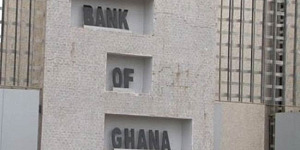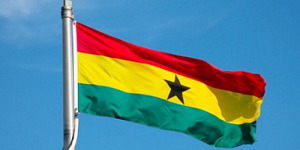Ghana's central bank maintained its monetary policy rate at 25.50 percent, saying the risks to inflation and growth are balanced, with the trend toward declining inflation considered positive.
Nevertheless, the Bank of Ghana (BOG), which cut its rate in November by 50 basis points in the first easing since July 2011, added it was concerned that inflation could be affected by the recent volatility in the exchange rate of the cedi, persistent increases in food prices and fiscal policy.
"There is therefore the need to return to the path of fiscal consolidation to complement the tight monetary policy stance to deliver on the medium term inflation target," the BOG said.
Although the conditions for economic growth are considered "modest," the central bank said prospects were positive, helped by improved oil and gas production from new fields, the gradual rebound in private sector credit and improved sentiment and expectations.
Ghana's headline inflation rate decelerated further to 15.4 percent in December, the lowest since July 2014, from 15.5 percent in November while the economy grew by an annual 4.0 percent in the third quarter of 2016, up from 2.3 percent in the second quarter.
While the decline in inflation was largely as BOG had expected, the central bank added that the underlying assumptions were revised to reflect the recent rise in ex-pump prices, exchange rate deprecation and the higher-than-budgeted fiscal deficit for 2016.
Despite continuous tightening of monetary policy since February 2012, Ghana's cedi fell sharply from early 2013 until mid-2015. Since then it has been more stable although volatility returned in the run-up to the December polls, with the cedi down by 9 percent in November last year.
Last year the cedi depreciated by 9.6 percent against the U.S. dollar, less than a 15.7 percent depreciation in 2015, the BOG said.
Today the cedi was trading at 4.35 to the U.S. dollar, down 1.6 percent this year.
Economic activity was modest last year due to tight monetary policy, power supply constraints and challenges at the Jubilee field. But the BOG said consumers are more optimistic following the polls and higher oil production from new fields should boost growth this year.
The International Monetary Fund has forecast that new fields should boost Ghana's oil output by some 50 percent, raising economic growth to 7.5 percent this year. It also expects inflation to ease to 10 percent in 2017.
The BOG said provisional data for the year to November indicated a budget deficit of 7.0 percent of Gross Domestic Product compared with a target of 4.7 percent, mainly due to lower revenues while government spending was broadly within target.





















































